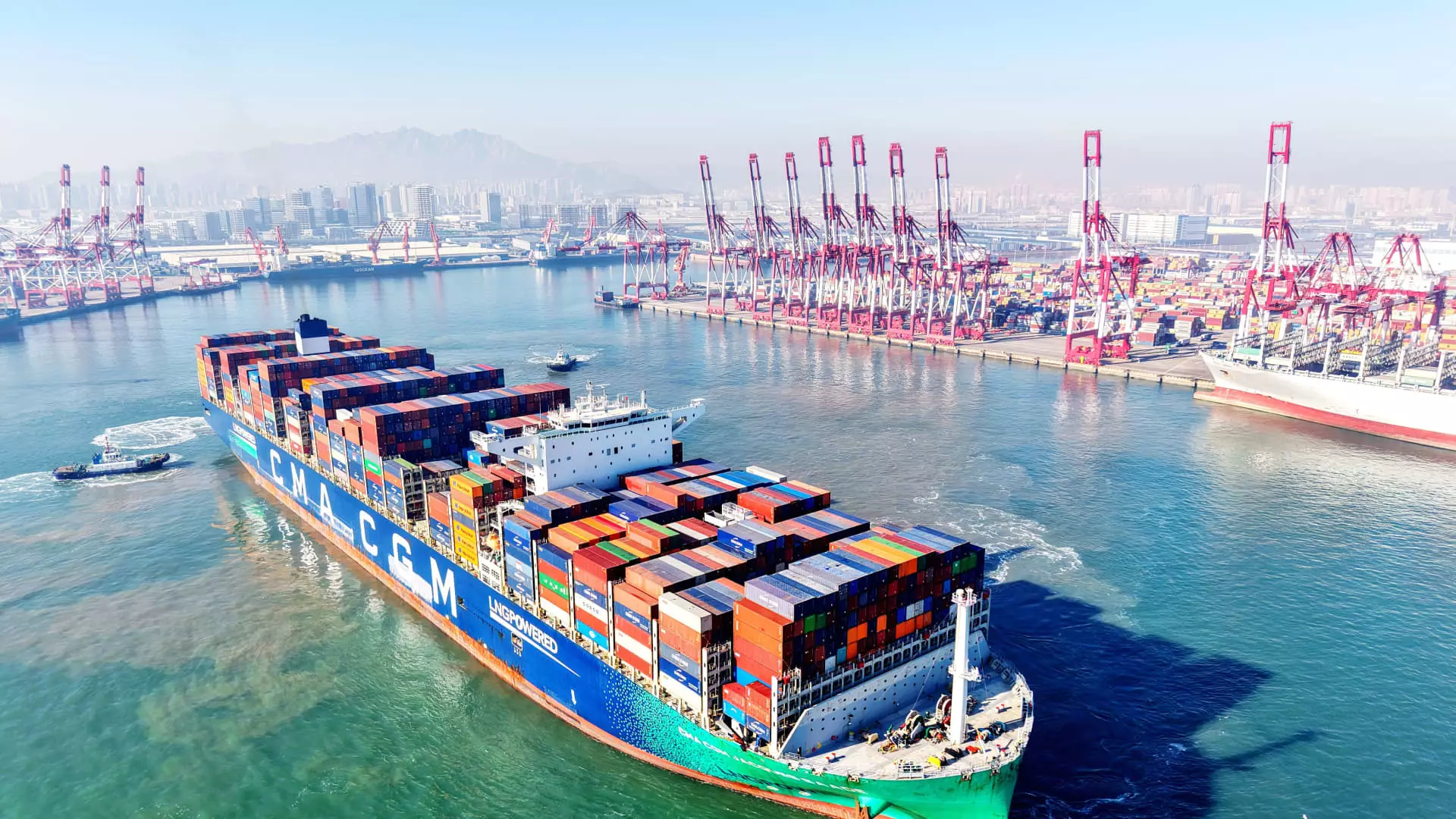As China navigates its intricate economic landscape amidst looming tariff changes and a fluctuating interest rate environment, investors are increasingly drawn to high-yielding stocks within the mainland A-share market. This article delves into current market trends, the implications of government policies, and identifies the sectors offering lucrative investment opportunities.
The imminent introduction of tariffs on Chinese goods by the incoming U.S. administration has spurred significant anxiety in financial markets. With expectations that these tariffs could escalate, analysts predict potential downsides for Chinese exports and a tangible impact on the nation’s GDP. Specifically, it is anticipated that these tariffs could reduce exports by approximately 6% and result in a 1% dip in GDP—a forecast that cannot be ignored by investors. Moreover, while the broader market may experience volatility, China’s strategic focus seems to be on sustaining growth through domestic stimulus measures, contrasting sharply with external pressures.
Another pivotal issue at the forefront of China’s financial scene is the declining yield of government bonds. As recent reports indicate, the 10-year Chinese government bond yield has plummeted to historic lows, hovering around 1.58%. This decline has caught the attention of investment analysts, particularly as it coincides with the potential for further rate cuts by the People’s Bank of China (PBOC). Citigroup analysts project that the PBOC may soon lower interest rates by 50 basis points and reduce the reserve requirement ratio for banks by 100 basis points—a move designed to bolster liquidity within the economy.
In the wake of these developments, strategic repositioning toward high-yielding stocks has emerged as an attractive avenue for long-term investors. Stocks in sectors such as banking and consumer appliances have historically delivered yields that significantly exceed the meager returns available from government bonds. For example, companies like Gree Electric Appliances and Ping An Bank stand out for their ability to provide dividend yields in the range of 4% to 6%, making them appealing to those seeking reliable income.
Investors are increasingly turning their attention to selected companies that have exhibited strong resilience despite economic headwinds. Among Citigroup’s recommended picks are prominent players in the Chinese market, including electric vehicle manufacturer Yutong Bus and the aforementioned Gree Electric and Ping An Bank. These entities are not only favored for their yield but also for their potential to weather economic fluctuations due to strong fundamentals and market positioning.
However, it is critical to approach these high-yield investments with caution. Concerns linger regarding the sustainability of dividend payouts, particularly in sectors sensitive to commodity price swings, which can introduce volatility into earnings and yields. The current economic climate—characterized by a risk of lower prices and deflation—reflects a complicated backdrop for investors who must weigh potential returns against inherent risks.
In light of the evolving economic landscape, policymakers in China are under pressure to formulate effective fiscal responses that can stimulate growth and mitigate deflationary risks. Recent data revealed that GDP growth softened to 4.2% when adjusted for lower prices—the government’s goal of a 5% expansion remains a challenging target. This context underscores the critical role fiscal policy will play in supporting the real estate sector and spurring overall economic activity.
The upcoming annual parliamentary meetings will be pivotal, as they are expected to lay out new fiscal measures, including potential increases to the fiscal deficit. Such initiatives are essential for sustaining economic momentum and achieving desired growth metrics amid external pressures and domestic challenges.
As investors consider their strategies in the face of shifting economic tides—marked by potential tariffs and declining bond yields—high-yielding stocks present a compelling opportunity, albeit with caution advised. The balance of leveraging attractive yields while acknowledging the complexities of external economic pressures will define the investment landscape in China over the coming months. Investors would do well to remain vigilant, adapting to ongoing market shifts while seeking robust opportunities within the mainland stock arena.

